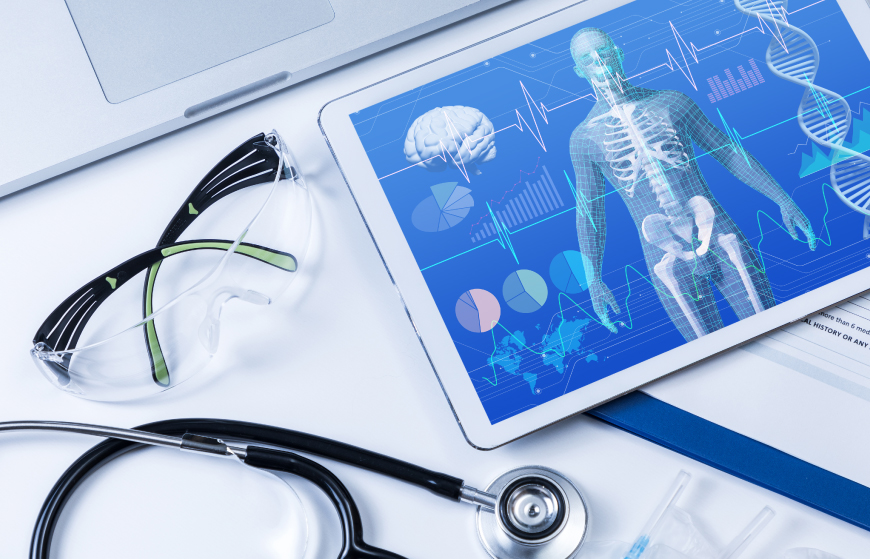- Home
- Investment Opportunities
- Latest Information
- Industry Focus
Industry Focus
- Healthcare

| Category | Tele-Health | E-Health | U-Health | Smart-Health |
|---|---|---|---|---|
| Period | Mid-1990s | 2000 | 2006 | After 2010 |
| Service | Inpatient care | Treatment or offering information | Treatment/ prevention management | Treatment/ prevention/ welfare/safety |
| Main Player | Hospital | Hospital | Hospital, ICT- enterprise | Hospital, ICT-enterprise, Insurance company, service company, etc. |
| Main User | Medical personnel | Medical personnel, patients | Medical personnel, patients, ordinary people | Medical personnel, patients, ordinary people |
| Main System | Hospital management (HIS, PACS) | Electronic Medical Record (EMR) website | Electronic Health Record (HER) monitoring | Personalized service based on personal health record |
Accumulated Experience in Remote Treatment during the Pandemic
In fact, the main goal of Smart Healthcare with telemedicine is to constantly monitor the patient's condition alongside abnormal symptoms, and to give appropriate treatment. Korea has applied the service to real patients and had a success during the pandemic. Also, to further advance the system, the country is currently distributing relevant equipment, making a Big Data database, and securing cases with regards to prescription and prevention.
Overseas Smart Healthcare Market Trend
In addition, genome analysis plays a pivotal role in precision medicine and personalized medicine, the core of Smart Healthcare. Furthermore, a government-led industrial support - the U.S. medical policy such as the Cancer Moonshot* - and revitalization measures act as major differentiators in the field of genome analysis.
*Cancer Moonshot Initiative (2016): A U.S. government-led health policy that aims to reduce cancer mortality by more than 50 percent over the next 25 years, and better the experience of cancer patients/survivors and their families.
Domestic Smart Healthcare Market Trend
Most notably, Korean start-ups, recognized for their technology, are expanding in terms of investment promotion, with Noom attracting USD 540 million and HUINNO attracting KRW 20 billion. Moreover, large companies such as domestic insurance, telecommunications, and platform companies are also entering the Smart Healthcare market in real earnest. The Kakao Group established a healthcare CIC in December 2021, and KB Insurance set up KB Healthcare in October 2021.
Government’s Support Policy for Smart Healthcare
Along with the Green New Deal, the Digital New Deal is one of the pillars of the Korean version of the New Deal with an aim to lead job creation and digital transformation through the Digital New Deal. Therefore, it plans to center on investing in the entire D.N.A (Data-Network-AI) ecosystem to create new digital products as well as services, and to improve economic productivity.
Smart Healthcare is a crucial industry as a measure for medical expenses poised to increase, rapidly owing to the growing proportion of the elderly, and will prevent patients from diseases and enable complete recovery at the lowest cost in the event of diseases. Especially, one of the important characteristics of Smart Healthcare market is that it is difficult to change once customers take part in the market dominated by the ICT-based technology and platform companies. Going forward, it is hoped that the government support together with the participation of competent medical staff, scientists and entrepreneurs make South Korea an exemplary case of success in Smart Healthcare.
By Junghee Lim (jhlim@intervest.co.kr))
VP, InterVest, Bio-investment Division
* The opinions expressed in this article are the author’s own and do not reflect the views of KOTRA.










